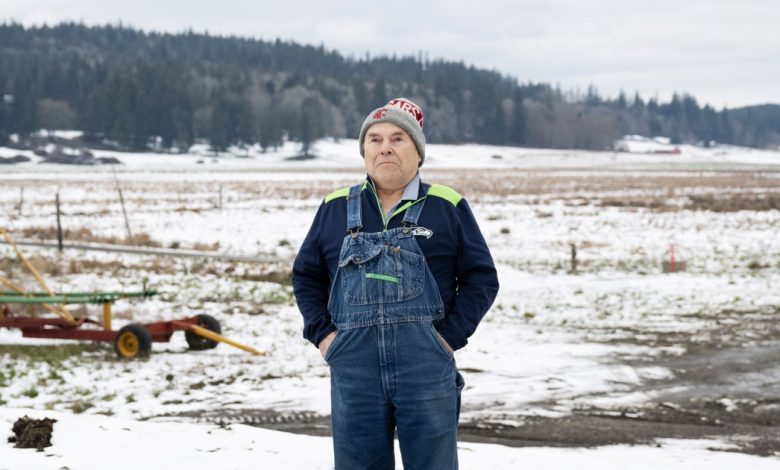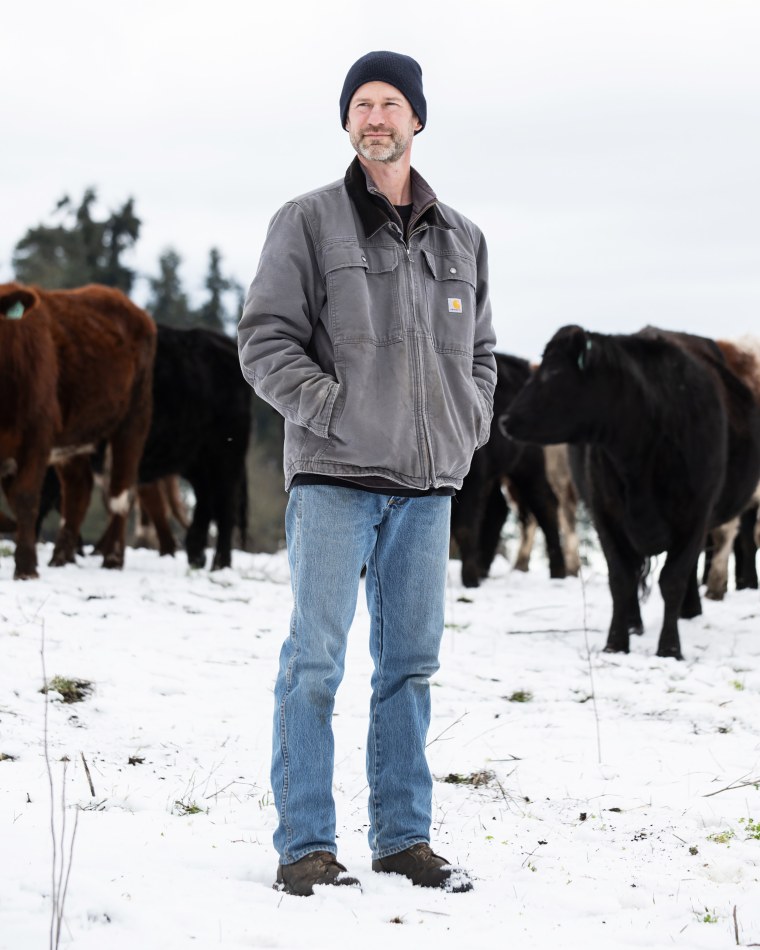The next generation of farmers struggles to fit on preserved farmland

Nevertheless, land trusts say they’re inundated with requests for preserved farmland. Jess Laggis, who leads conservation at the Southern Appalachian Highlands Conservancy, a land trust in Asheville, North Carolina, said her queue is five years long. Most of the farmers she works with are older, and some have died before the preservation process finishes.
“We try to be as liberal as possible in imagining what the future of agriculture looks like, because we acknowledge we don’t know,” Laggis said.
In Washington state, Short said it’s been a tough few months since leaving his farm. He moved into a new house and feels good about his retirement funds, but he misses the land. Whenever they can, he and Sandy visit the three younger farmers working on it now.
“I can talk with them and guide them, see how they’re doing,” he said.
One of them is Martin Frederickson, 46, who raises cattle on an adjacent farm. He now leases 75 acres of the Short property to give his animals more space to roam. Frederickson said he wanted a long-term arrangement that allowed him to nurture the land and feels the port authority’s ownership provides that. But buying the whole place was never financially viable.

A lot of farmland “is valued above its productive capacity, even with a conservation easement,” Frederickson said.
Crystie Kisler, 54, who grows organic grains that can withstand a rapidly warming climate on her own 150-acre farm nearby, leases 17 acres from the port. She agreed easements can be helpful for small farmers but said, “It’s not like a magic bean that you plant, and then everything’s OK.”
The port authority is comfortable remaining a landlord, even though the farm isn’t profitable and might not be for another two years, Berg said. He’s still content with the acquisition, which he said pre-empted deep-pocketed buyers who “could satisfy the requirements of the easement by owning it and keeping it farmable by just having a couple of horses run around.”
There are no plans to sell.
“We’re not hoping to send soybeans around the country,” Berg said. “We’re hoping to feed ourselves, and maybe some folks around the region.”




